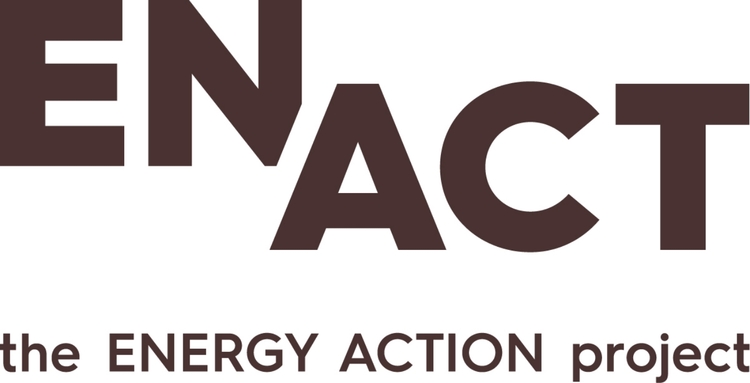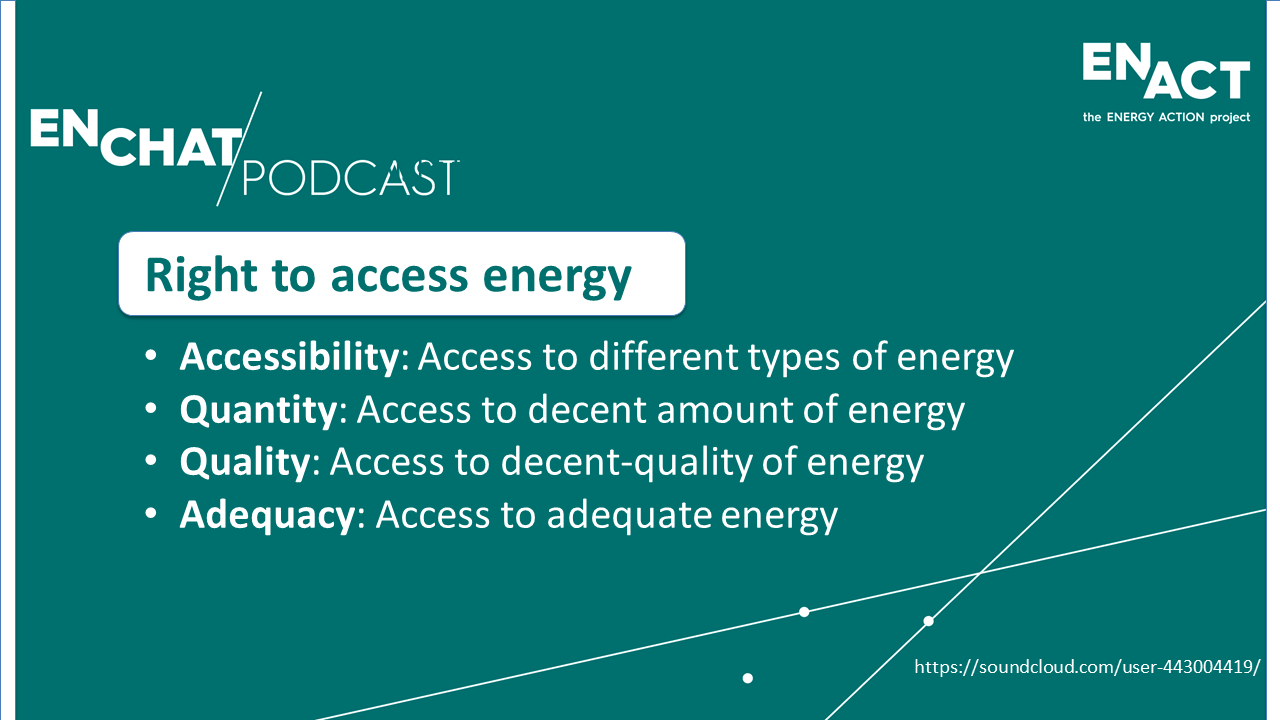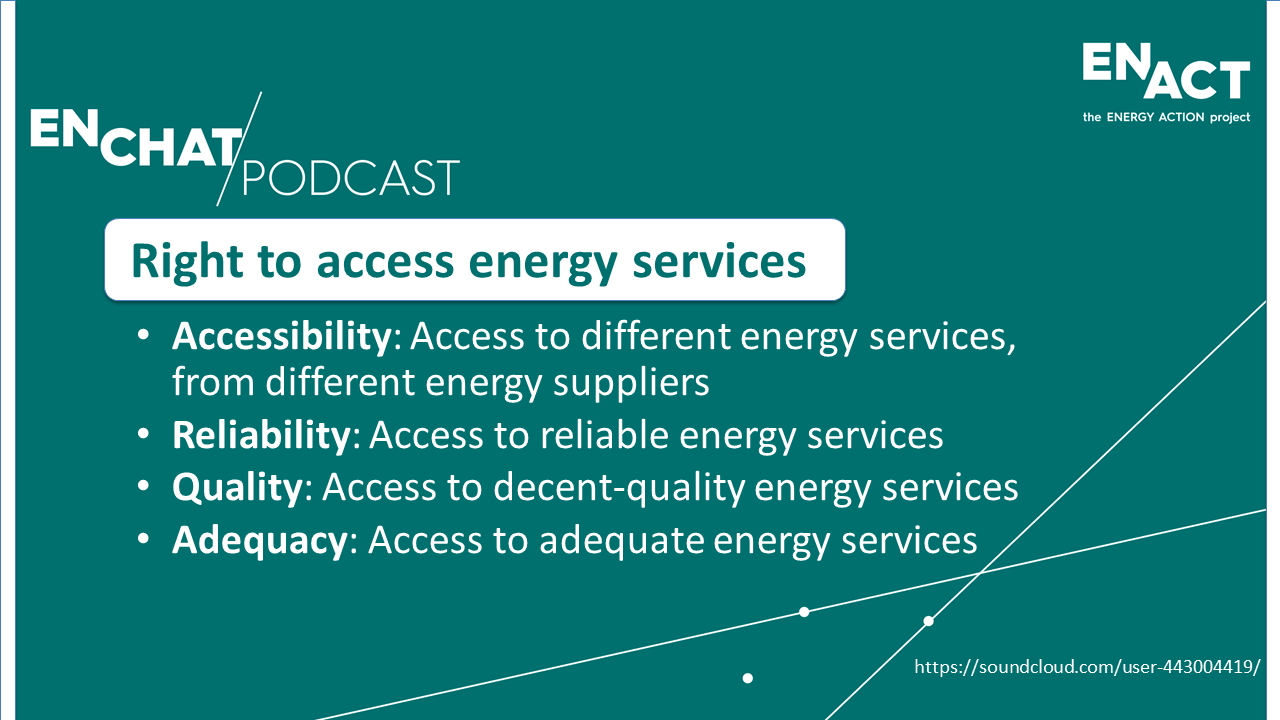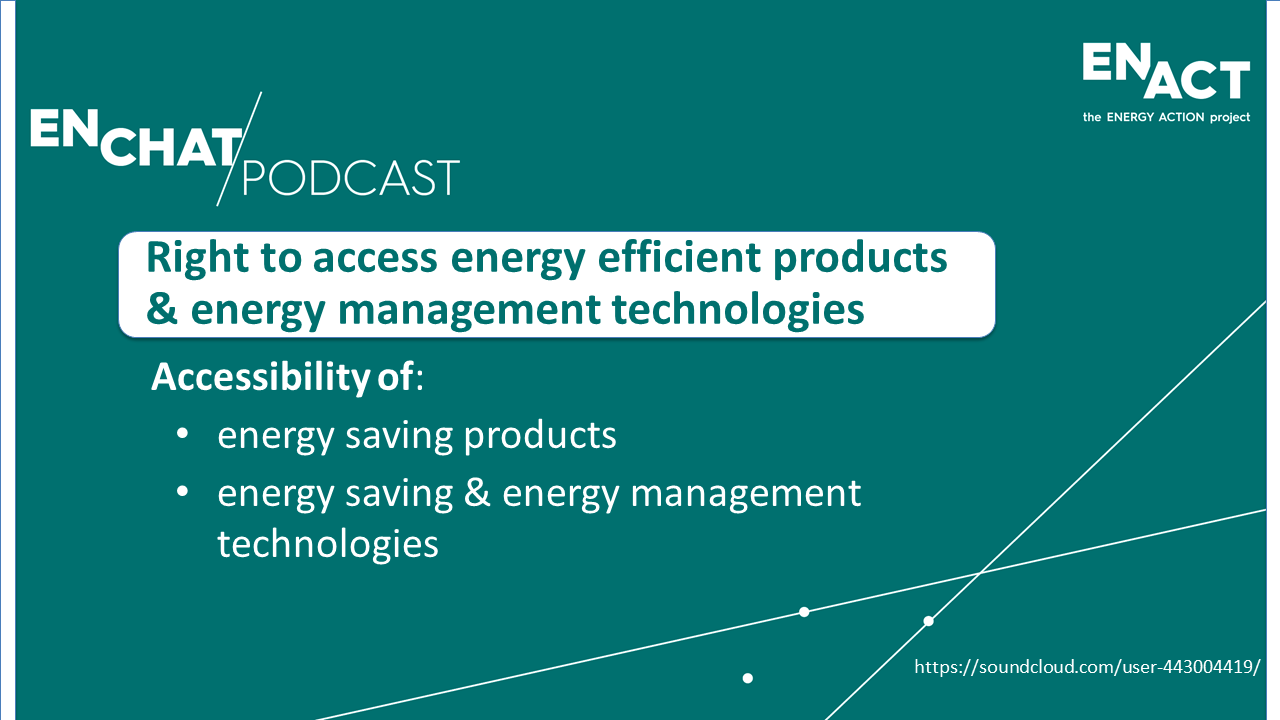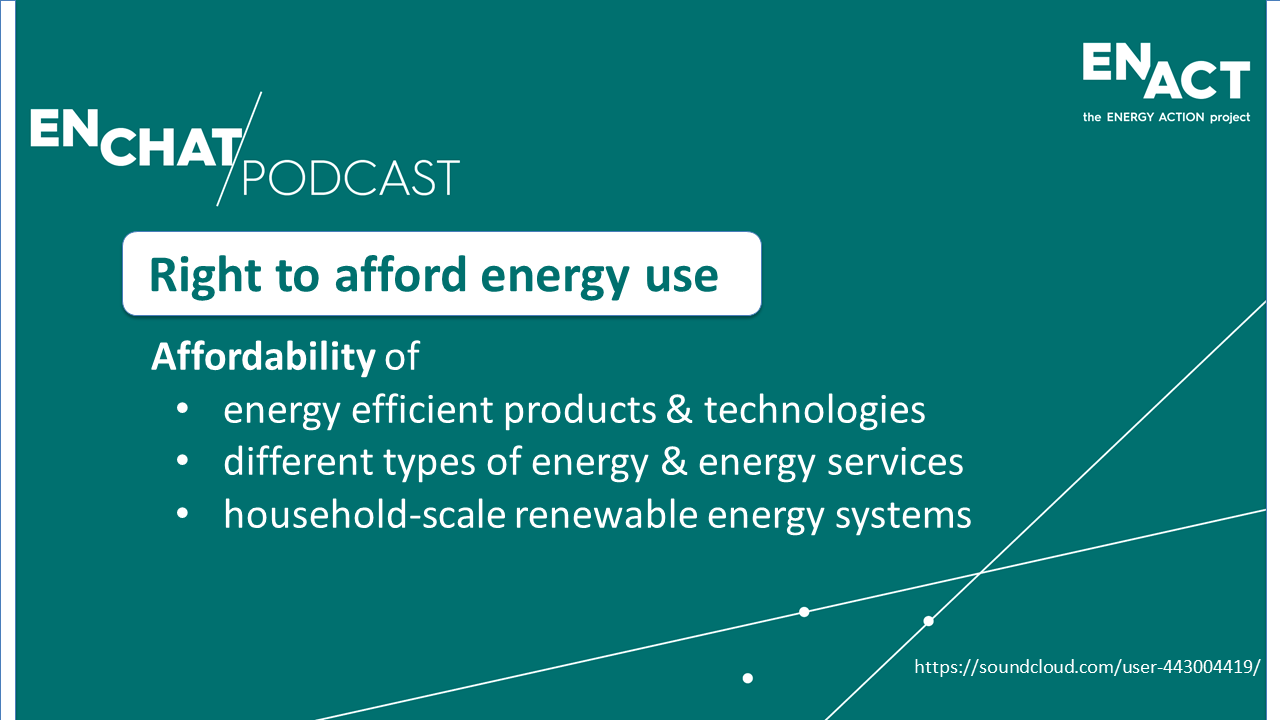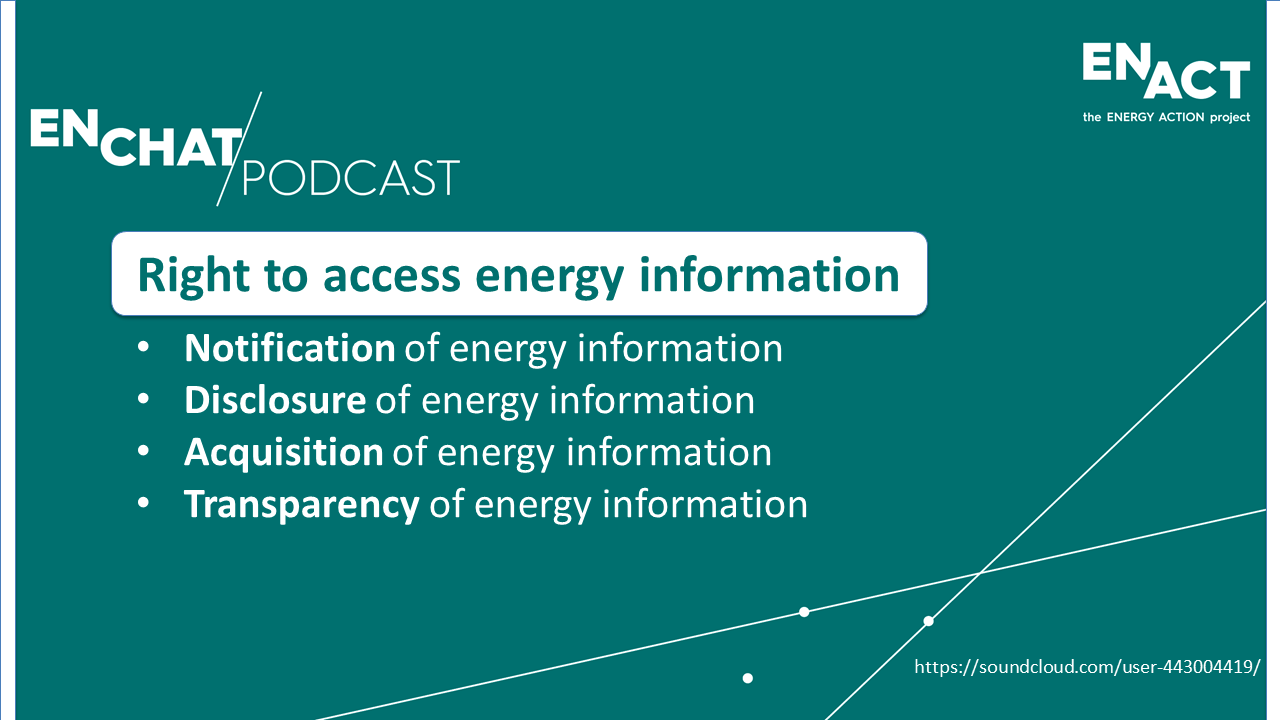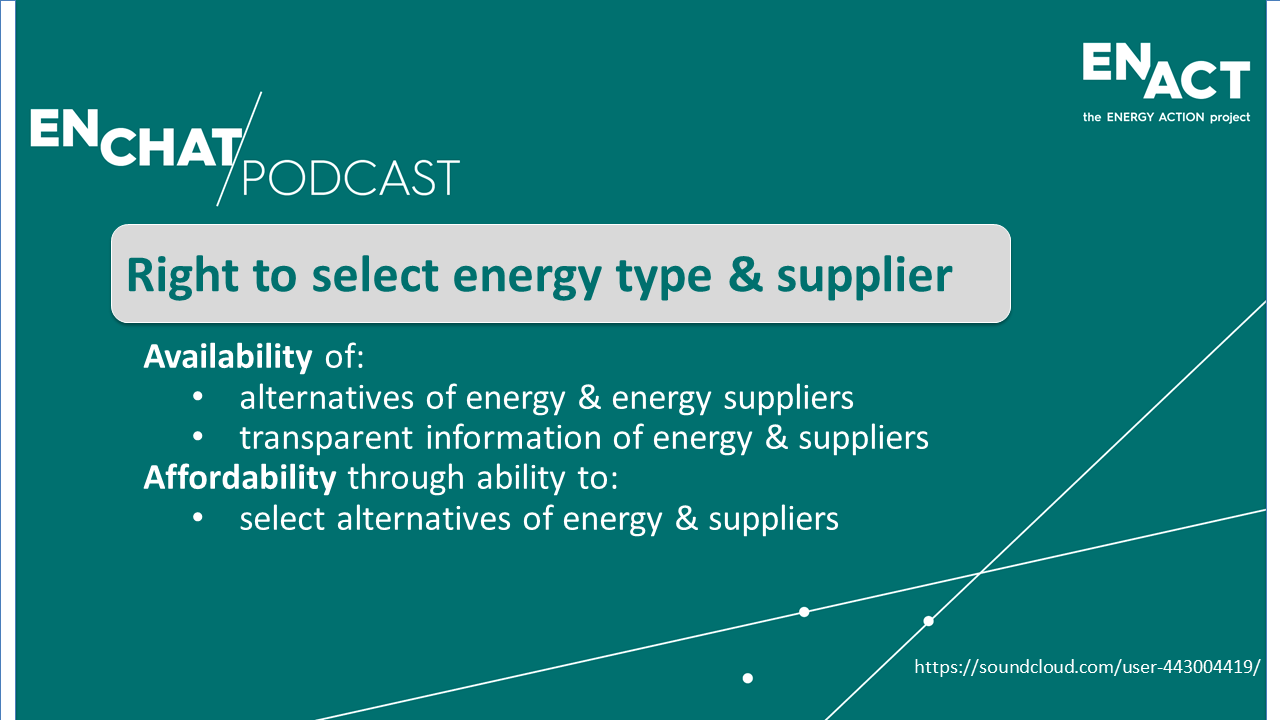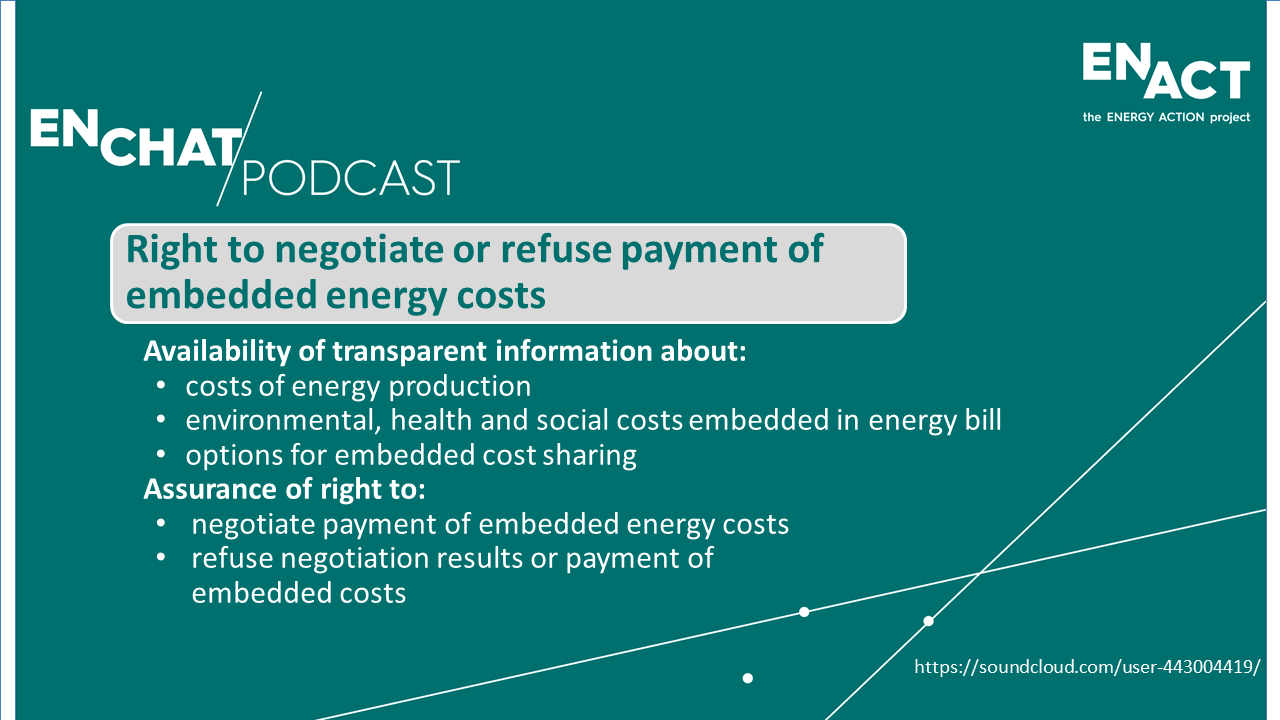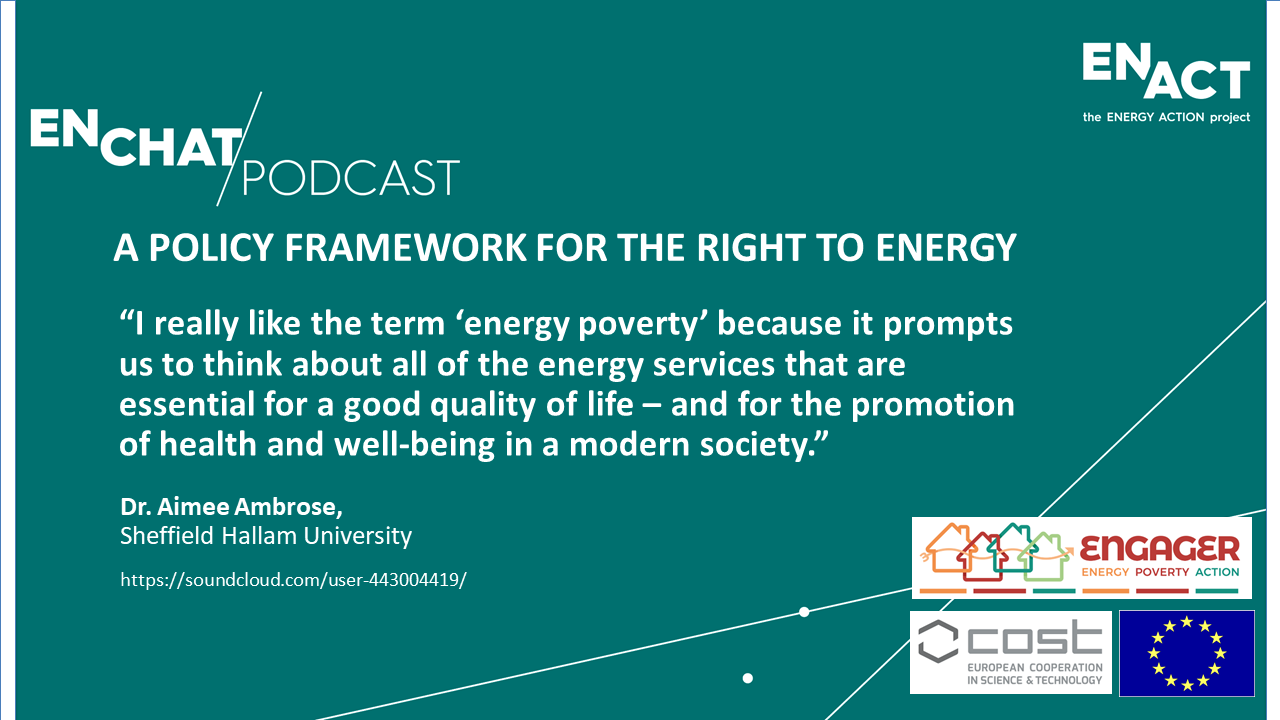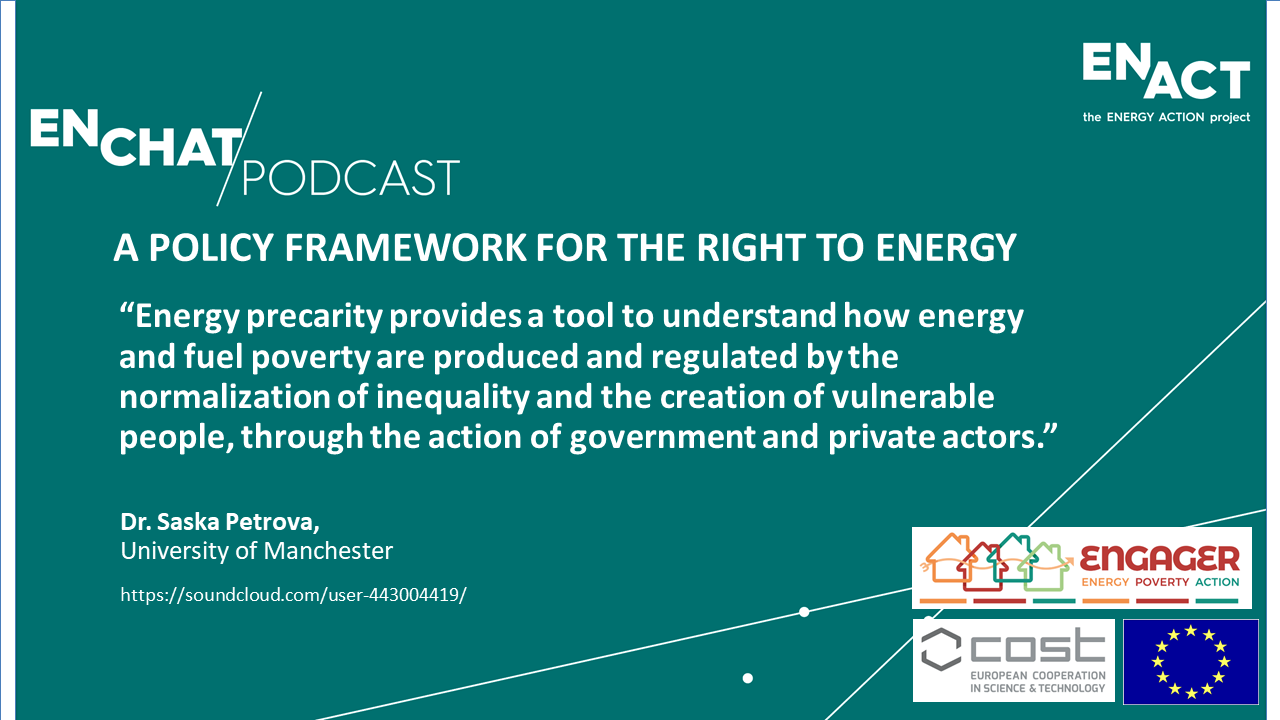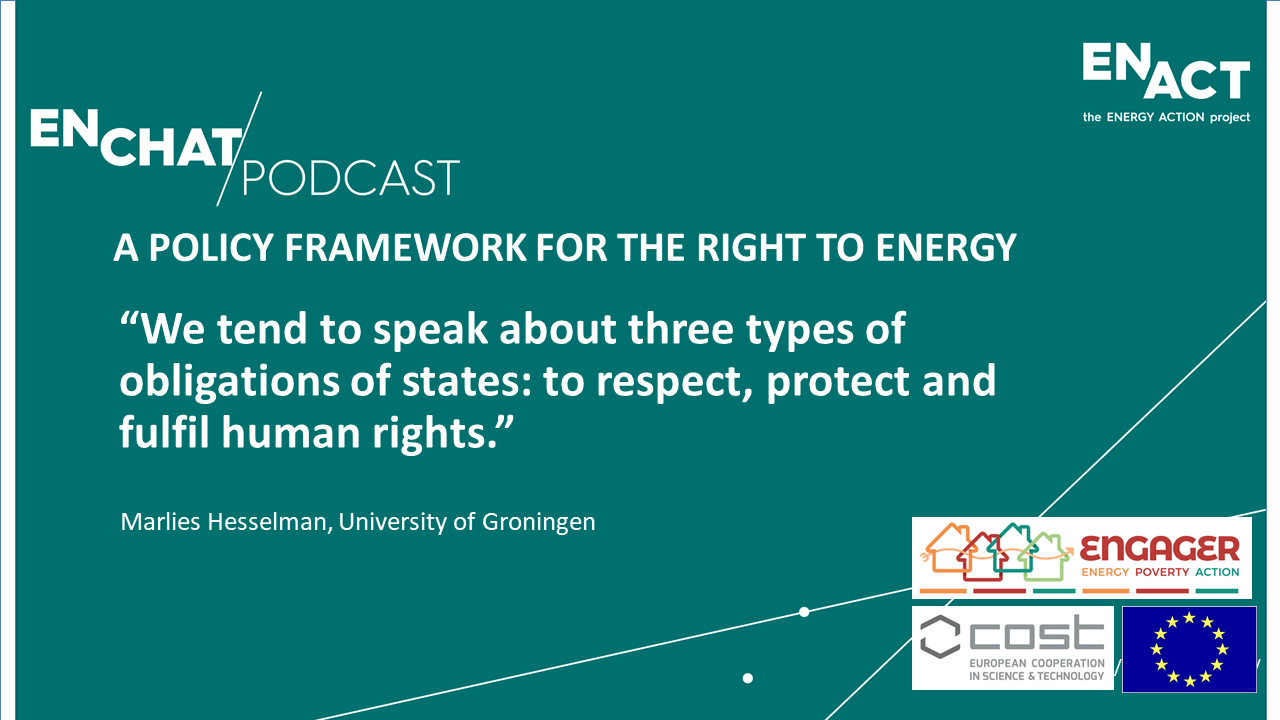A policy framework for the right to energy
The concept of access to energy as a basic human right may seem broad, a bit vague and overwhelming complex. Adopting a policy maker's perspective, Dr. Chian-Woei Shyu (National Chung-Cheng University, Taiwan) breaks it down into eight rights related to access to the resource, services and equipment, affordability, information, choice in supply, billing and participation in policy decisions.
While carrying out field work related to energy access in rural China and Tibet, Dr. Chian-Woei Shyu recognised how lack of effective policy played key role in trapping people in energy poverty — in turn limiting their ability to fully participate in society, advance economically and achieve a higher level of health and well-being.
Returning to his role as researcher at the National Chung-Cheng University in Taiwan, Dr. Shyu took up the challenge of adopting a policy maker’s perspective to ask what it would take to implement legislation that truly upheld access to energy as a basic human right. In a literature review, he quickly realised few others had broached this topic so directly.
“In the past 20 years, most papers are talking about four main terms: access to energy, energy poverty, energy democracy and energy justice,” says Dr. Shyu. “In more than 100 papers, we found very mixed, complicated and different approaches.”
In this second of our podcast series on the right to energy, Dr. Shyu walks us through what he defines as five ‘fundamental’ and three ‘supplemental’ rights that should be embedded in this broad concept.
Schematic of the right to energy policy framework developed by Dr. Chian-Woei Shyu.
Like a set of the infamous Matryoshka stacking dolls from Russia, Dr. Shyu breaks each of these eight high-level dimensions into more specific aspects of what policy should respect, protect and fulfill. Collectively, the aspects could be thought of a road map for policy makers to methodically tackle. Or, indeed, a checklist civil society actors can use to assess how well their governments are doing.
As with each podcast in this series, we’ve also asked other energy actors to weigh in regarding words or concepts they find important in the effort to achieve Sustainable Development Goal No 7: Universal access to clean, affordable, reliable energy.
Click below to listen to the full podcast with Dr. Shyu.
To access the first podcast in the series, in which Marlies Hesselman investigates precedents related to the right to energy in international law, click here.
To access the third podcast, in which David Kabanda explains how he is building the legal case for a right to energy in Uganda, click here.
ENGAGER stands for European Energy Poverty: Agenda Co-Creation and Knowledge Innovation, reflecting the network’s aim to bring about transformational change in the investigation and amelioration of household-level energy poverty in Europe. It is supported by COST – European Cooperation in Science & Technology – a funding agency for research and innovation networks that aims to enable scientists to grow their ideas by sharing them with peers.
This podcast series was financed by ENGAGER, through its COST funding.
